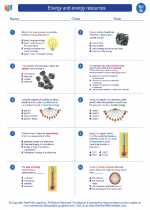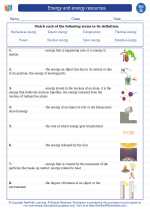Isolated Systems
An isolated system is a physical system that does not interact with its surroundings. This means that no energy or matter is exchanged between the system and its environment. Isolated systems are important in the study of thermodynamics and physics as they allow for the analysis of pure system behavior without external influences.
Characteristics of Isolated Systems
- No exchange of energy or matter with the surroundings
- Total energy within the system remains constant
- Total mass within the system remains constant
Examples of Isolated Systems
Some examples of isolated systems include:
- A sealed thermos flask containing hot coffee
- A sealed container of gas with no openings
- A closed insulated box with a fixed amount of air inside
Study Guide
When studying isolated systems, it's important to understand the following concepts:
- Energy Conservation: The total energy within an isolated system remains constant over time, as there is no exchange of energy with the surroundings.
- Matter Conservation: The total mass within an isolated system remains constant, as there is no exchange of matter with the surroundings.
- Thermodynamics Laws: Understanding how isolated systems relate to the laws of thermodynamics, including the first and second laws.
- Real-World Applications: Exploring how isolated systems are utilized in real-world scenarios, such as in the design of insulated containers and environmental studies.
By grasping these key concepts, you can gain a comprehensive understanding of isolated systems and their significance in the field of science and engineering.






